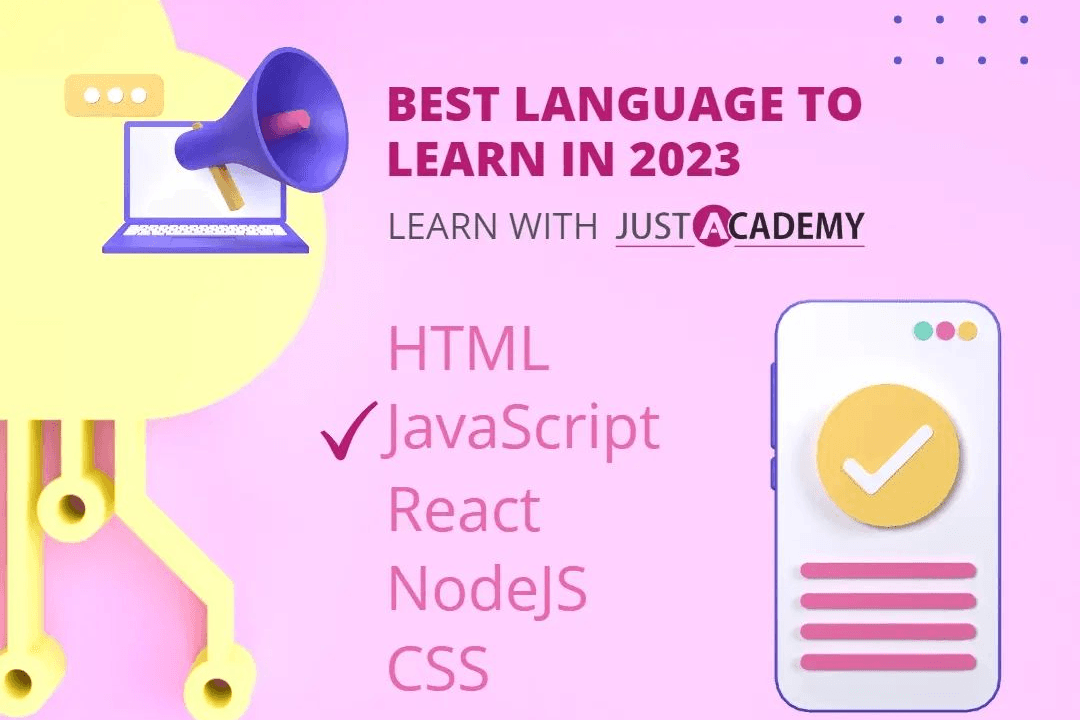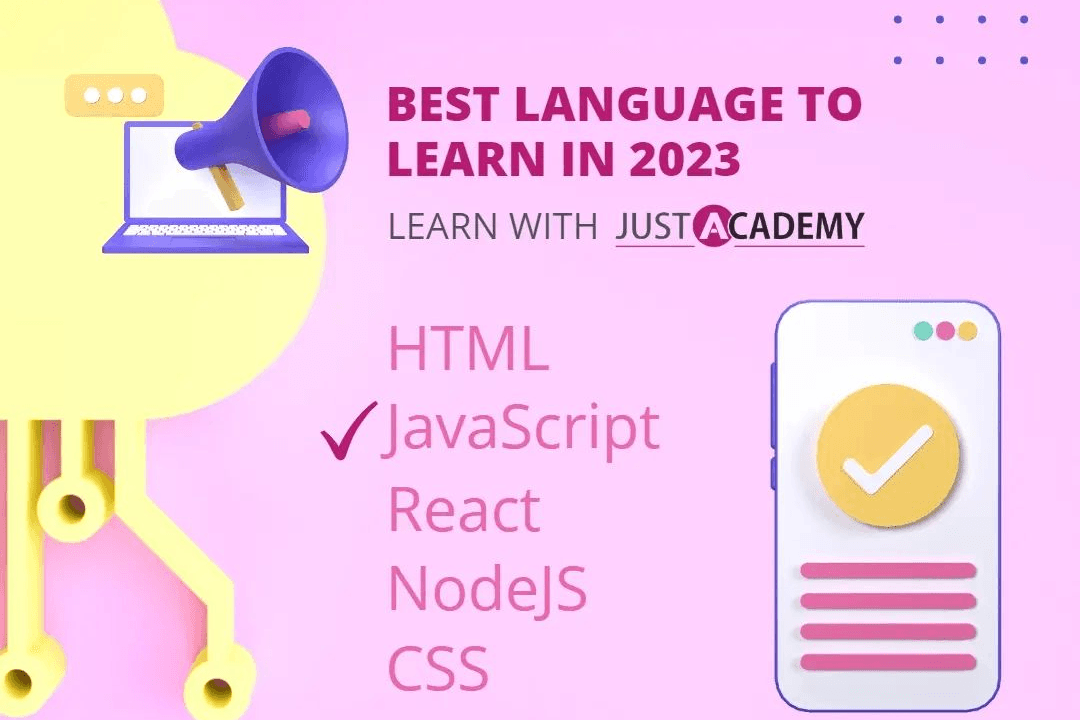Best Institute For Cloud Computing
Top Cloud Computing Certification Programs for Career Advancement
Best Institute For Cloud Computing
Cloud computing has emerged as a crucial technology that enables individuals and organizations to store, manage, and process data over the internet, offering flexibility, scalability, and cost-effectiveness. Choosing the best institute for cloud computing is essential for those looking to gain in-depth knowledge and practical skills in this rapidly evolving field. Such institutes provide comprehensive training on various cloud platforms, hands-on projects, and industry-recognized certifications that enhance employability. By learning from experienced instructors and participating in real-time projects, students can effectively prepare themselves for dynamic roles in the tech industry, staying ahead in an increasingly digital landscape. At JustAcademy, we emphasize practical learning and industry relevance to ensure our students are well-equipped for a successful career in cloud computing.
To Download Our Brochure: https://www.justacademy.co/download-brochure-for-free
Message us for more information: +91 9987184296
Cloud computing has emerged as a crucial technology that enables individuals and organizations to store, manage, and process data over the internet, offering flexibility, scalability, and cost effectiveness. Choosing the best institute for cloud computing is essential for those looking to gain in depth knowledge and practical skills in this rapidly evolving field. Such institutes provide comprehensive training on various cloud platforms, hands on projects, and industry recognized certifications that enhance employability. By learning from experienced instructors and participating in real time projects, students can effectively prepare themselves for dynamic roles in the tech industry, staying ahead in an increasingly digital landscape. At JustAcademy, we emphasize practical learning and industry relevance to ensure our students are well equipped for a successful career in cloud computing.
Course Overview
The “Best Institute for Cloud Computing” course offered by JustAcademy is designed to equip learners with comprehensive knowledge and practical skills in cloud technologies. This course covers essential topics such as cloud architecture, deployment models, and service models, focusing on leading platforms like AWS, Azure, and Google Cloud. Students will engage in real-time projects that simulate industry scenarios, allowing them to apply theoretical concepts in practical settings. Through hands-on training, expert mentorship, and collaboration on real-world applications, learners will gain the confidence and expertise needed to excel in cloud computing roles and earn valuable certifications that enhance their career prospects.
Course Description
The “Best Institute for Cloud Computing” course at JustAcademy is designed to provide students with a thorough understanding of cloud computing fundamentals, including key concepts, architectures, and services offered by major providers such as AWS, Azure, and Google Cloud. This course combines theoretical knowledge with hands-on experience through real-time projects that mimic real-world challenges in cloud deployment and management. Participants will explore various cloud models, gain practical skills in building and maintaining cloud infrastructure, and develop the expertise to tackle industry-specific problems, ultimately preparing them for successful careers in the rapidly evolving field of cloud technology. Upon completion, students will receive a certification that recognizes their proficiency in cloud computing.
Key Features
1 - Comprehensive Tool Coverage: Provides hands-on training with a range of industry-standard testing tools, including Selenium, JIRA, LoadRunner, and TestRail.
2) Practical Exercises: Features real-world exercises and case studies to apply tools in various testing scenarios.
3) Interactive Learning: Includes interactive sessions with industry experts for personalized feedback and guidance.
4) Detailed Tutorials: Offers extensive tutorials and documentation on tool functionalities and best practices.
5) Advanced Techniques: Covers both fundamental and advanced techniques for using testing tools effectively.
6) Data Visualization: Integrates tools for visualizing test metrics and results, enhancing data interpretation and decision-making.
7) Tool Integration: Teaches how to integrate testing tools into the software development lifecycle for streamlined workflows.
8) Project-Based Learning: Focuses on project-based learning to build practical skills and create a portfolio of completed tasks.
9) Career Support: Provides resources and support for applying learned skills to real-world job scenarios, including resume building and interview preparation.
10) Up-to-Date Content: Ensures that course materials reflect the latest industry standards and tool updates.
Benefits of taking our course
Functional Tools
1 - Amazon Web Services (AWS): AWS is one of the leading cloud service providers and is widely used in the course curriculum. Students gain hands on experience with various AWS services, including EC2 for compute power, S3 for storage, and RDS for databases. This exposure equips learners with the skills to deploy scalable applications and manage resources effectively in a cloud environment.
2) Microsoft Azure: As a competitive player in the cloud market, Microsoft Azure is another key tool covered in the course. Students explore Azure's extensive services, such as Azure Functions for serverless computing and Azure DevOps for integrated development and operations. Training in Azure provides students with the ability to create a seamless transition from on premises solutions to cloud based services.
3) Google Cloud Platform (GCP): GCP is incorporated into the curriculum to give students a comprehensive understanding of different cloud architectures. Through hands on projects, learners familiarize themselves with tools like Google Kubernetes Engine (GKE) and BigQuery for data analysis. This experience prepares students to solve real world business problems by leveraging GCP's innovative solutions.
4) Docker: Docker, a popular containerization tool, is included in the course to teach students how to package applications and their dependencies in a portable container. This allows for consistent deployment across various environments, which is crucial in cloud environments. Understanding Docker empowers students to enhance their development workflows and apply modern practices in application delivery.
5) Kubernetes: As an orchestration tool for managing containerized applications, Kubernetes is essential for cloud computing professionals. The course covers its architecture and operational aspects, allowing students to deploy, scale, and manage applications in a cloud environment effectively. Mastering Kubernetes prepares students to handle complex deployments and ensure availability in production settings.
6) Terraform: Terraform is utilized to teach students about infrastructure as code (IaC), enabling them to provision and manage cloud infrastructure through code rather than manual processes. Learning Terraform enhances students' ability to implement automated deployment and configuration, improving efficiency and reducing the likelihood of errors. By grasping these practices, students become well equipped to operate in today’s DevOps environments, bridging the gap between development and IT operations.
7) Ansible: Ansible is an automation tool that simplifies the management of cloud infrastructure. The course includes hands on training in using Ansible to automate application deployment, configuration, and orchestration. By mastering Ansible, students learn to enhance operational efficiency and reduce the time required for manual setup processes, making them valuable assets in any cloud environment.
8) CI/CD Pipelines: Continuous Integration/Continuous Deployment (CI/CD) practices are vital for modern software development. The curriculum covers how to build and maintain CI/CD pipelines using tools like Jenkins, GitLab CI, or CircleCI. Students gain practical experience in automating testing and deployment processes, enabling them to deliver applications faster while ensuring high quality standards.
9) Serverless Computing: Serverless architectures eliminate the need for server management, allowing developers to focus on writing code. The course introduces platforms like AWS Lambda and Azure Functions, enabling students to develop applications that respond to events without provisioning servers. This training teaches students how to maximize efficiency and scalability in modern application development.
10) Cloud Security: Understanding security in cloud computing is crucial for protecting sensitive data and applications. The program includes training on best practices for securing cloud environments, covering topics such as identity and access management (IAM), encryption, and compliance frameworks. Students learn to design and implement security measures that safeguard cloud infrastructures.
11 - Microservices Architecture: The course features training on microservices architecture, teaching students to develop applications as a collection of loosely coupled services. This approach enhances scalability and maintainability, making applications easier to manage. Students engage in projects that simulate real world scenarios, fostering a deep understanding of microservices principles.
12) Big Data Technologies: The increasing amount of data generated requires specific strategies and tools to manage and analyze it effectively. The curriculum introduces students to big data tools like Apache Hadoop and Apache Spark, providing them hands on experience in processing and analyzing large datasets. This knowledge is essential for individuals looking to work in data engineering or analytics roles in the cloud.
13) Data Analytics and Visualization: Understanding and interpreting data is a key skill in today’s job market. The course includes modules on data analytics and visualization tools, such as Tableau and Power BI. Students learn to gather insights from data and communicate findings effectively through visual representations, making them invaluable in roles that require data driven decision making.
14) Networking in Cloud Computing: Cloud networking fundamentals are essential for anyone looking to manage cloud infrastructures. Topics include Virtual Private Cloud (VPC), load balancing, and DNS services. Hands on projects allow students to set up and secure network components within a cloud environment, preparing them for roles that require knowledge of cloud networking.
15) Cost Management: A crucial aspect of cloud computing is managing costs effectively. The course covers techniques for monitoring and controlling cloud expenses, enabling students to analyze billing data and optimize resource usage. Understanding cloud economics equips students with the ability to design cost effective solutions for organizations.
By incorporating these points into the curriculum, JustAcademy ensures that students are well prepared for a variety of roles within the cloud computing landscape, ready to tackle the challenges of an ever evolving industry.
Browse our course links : https://www.justacademy.co/all-courses
To Join our FREE DEMO Session: Click Here
This information is sourced from JustAcademy
Contact Info:
Roshan Chaturvedi
Message us on Whatsapp: +91 9987184296
Email id: info@justacademy.co
Data Analytics Interview Questions for Freshers
How Many Angular Nodes Are Present in 5f Orbital
Mobile App Development Course Montreal
Difference Between Alpha And Beta Testing In Software Engineering












